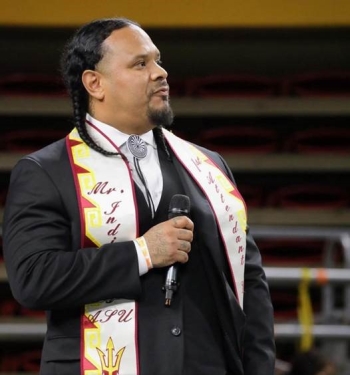ASU graduate Cordero Holmes’ path to success paved with hardship, redemption and resilience
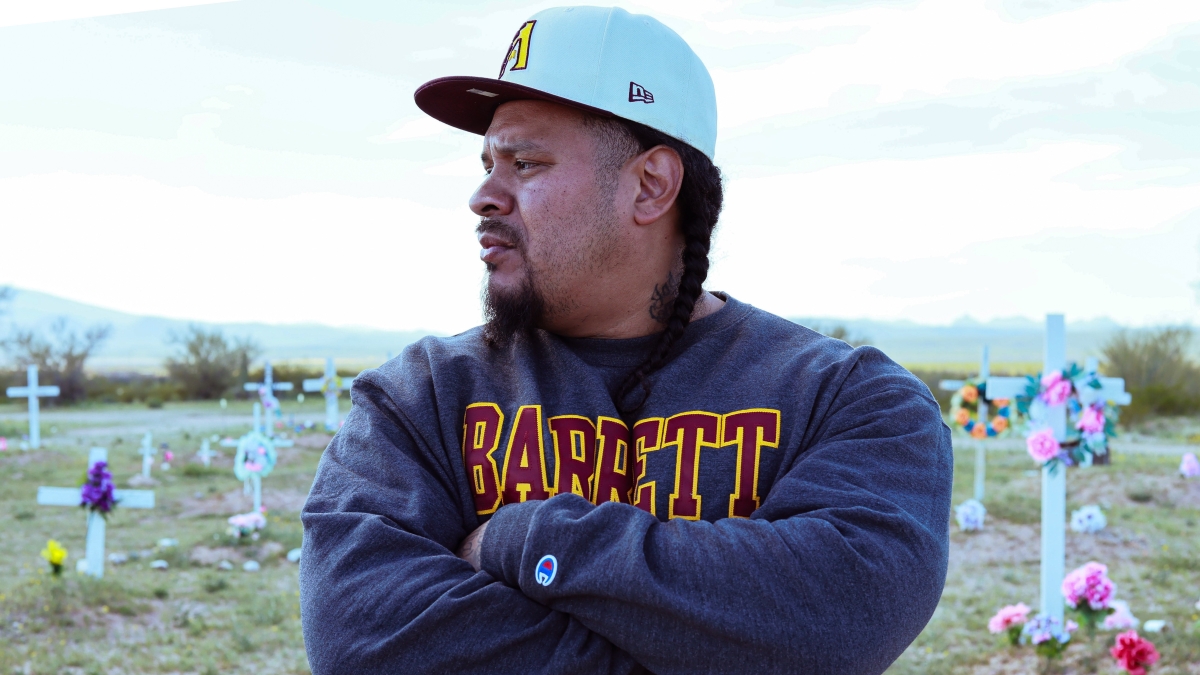
Cordero Holmes is graduating from ASU in May with a bachelor's degree in public service and public policy from the School of Public Affairs at the Watts College of Public Service and Community Solutions, with honors from Barrett, The Honors College. Photo by Orlando Espino
Editor’s note: This story is part of a series of profiles of notable spring 2024 graduates.
Cordero Holmes is not what you would consider a traditional college student.
His path to Arizona State University didn’t start right out of high school, but instead took a circuitous route through a hardscrabble life as a youngster involved in gangs in southwest Phoenix, time spent in juvenile detention facilities and incarceration as an adult.
“I have been in and out of institutions since I was a juvenile. As an adult, I was sentenced to 10 and a half years in prison. Then, when released, I was a single father of two kids, one being autistic,” said Holmes, who is graduating ASU in May with a bachelor’s degree in public service and public policy from the School of Public Affairs in the Watts College of Public Service and Community Solutions, with honors from Barrett, The Honors College.
Holmes, 35, a member of the Tohono O’odham Nation, plans to stay on at ASU to pursue a master’s degree in public administration. He recently was selected as Mr. Indigenous at ASU 1st Attendant 2024-2025 and will serve as a goodwill ambassador and represent ASU at cultural events on campus and around Indian Country.
Holmes said his turning point came during three years in solitary confinement, where he thought about his choices, who he wanted to be and what he wanted to accomplish, and he realized his life could change with higher education.
He began attending Rio Salado College through its re-entry program for incarcerated students, and when he was released from prison, found work in Glendale, Arizona, packaging and lifting concrete in all kinds of weather. It was a tough job that paid the bills and helped him gain custody of his two children.
He completed two associate degrees at Rio Salado College and was the college’s Class of 2022 Student Commencement Speaker. In recognition of his academic performance and community service, he was named to the 2022 All-Arizona Academic Team, an Arizona Board of Regents designation that comes with tuition scholarships, and transferred into ASU. He also received the Jack Kent Cook Foundation Scholarship and the Hites Transfer Scholarship for members of Phi Theta Kappa Honor Society.
Holmes served as fellow at St. Vincent de Paul, assisting with community engagement events and wellness programs, was affiliated with the Computing Alliance for Hispanic Serving Institutions at the University of Texas at El Paso, and was on the Maricopa Council on Black American Affairs within the Maricopa Community College District. He was a member of the Arizona Department of Education’s Indian Education Advisory Council where he advised then-Arizona Superintendent of Public Instruction Kathy Hoffman about policies regarding Indigenous children.
In 2022, he was featured in “Being Free,” a Roadtrip Nation documentary on PBS in which Holmes and two other formerly incarcerated people traveled the United States in a recreational vehicle sharing their experiences.
In 2023, he was a recipient of the Phoenix Human Relations Commission’s Martin Luther King Jr. Living the Dream Award.
We asked Holmes to reflect on his ASU experience. Here’s what he had to say.
Question: What was your “aha” moment when you realized you wanted to study the field you majored in?
Answer: It was in a conversation with a Barrett advisor at the ASU Polytechnic campus that I found out that based on where I lived and what I already had done advising Superintendent Hoffman on policy regarding Indigenous children and my involvement with the Arizona Department of Education’s Indian Education Advisory Council, the ASU Downtown Phoenix campus and the Watts College were probably a better fit for me.
Q: What’s something you learned while at ASU — in the classroom or otherwise — that surprised you or changed your perspective?
A: Four-year universities, especially ASU, can be as student-focused as the community college system I came from, in spite of them being so large.
Q: Why did you choose Barrett Honors College?
A: I wanted to expand my knowledge and learn how to conduct research and prepare for a graduate program. I learned a lot through completing my undergraduate honors thesis titled "Empowering Change: The Impact of Educational Interventions on Incarcerated Youth."
Q: Which professor taught you the most important lesson?
A: Elizabeth Harris, my sociology instructor, encouraged me to be who I am and not accept anything less from others and, most importantly, myself.
Q: What’s the best piece of advice you’d give those still in school?
A: It will all be worth it when you share the culmination of your hard work with family, friends and those who supported you during the journey.
Q: What was your favorite spot for on campus for studying, meeting friends or just thinking about life?
A: My favorite spot was a rooftop of a building on Portland Street near the ASU Downtown Phoenix campus. The view from there is amazing, and it allows me to see life from a higher perspective.
Q: If someone gave you $40 million to solve one problem on our planet, what would you tackle?
A: I would start a nonprofit foundation to send boys and girls experiencing difficult times to college, where they could be grouped together in cohorts every year, counseled by advisors and, in addition to academics, receive professional development opportunities. It would be similar in some ways to the Jack Kent Cooke Foundation, which has helped make all this possible for me.
More Sun Devil community
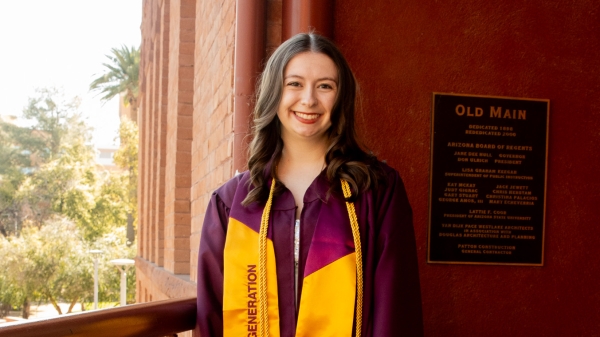
ASU grad crafts her own path in environmental chemistry
Editor’s note: This story is part of a series of profiles of notable spring 2024 graduates. Understanding chemistry has shaped Madison Sobol’s worldview. Passionate about environmental causes and…
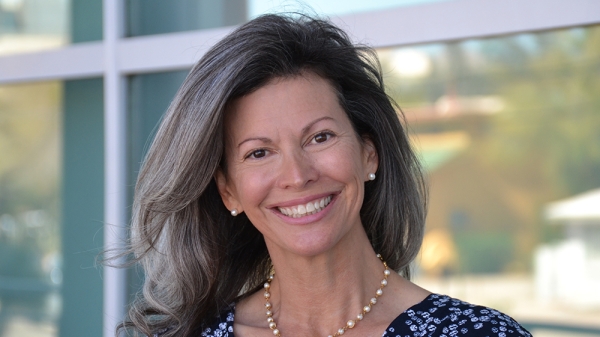
Business professor looks to the law for her future
Editor’s note: This story is part of a series of profiles of notable spring 2024 graduates. Peggy “Amber” Montz has a Master of Educational Technology from Arizona State University and an MBA from…
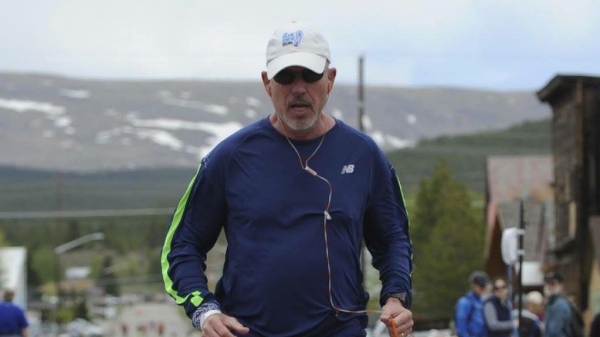
Grad earns law degree while overcoming cancer
Editor’s note: This story is part of a series of profiles of notable spring 2024 graduates. Scott Tish never thought law school was in the cards for him. A former air ambulance helicopter pilot…
